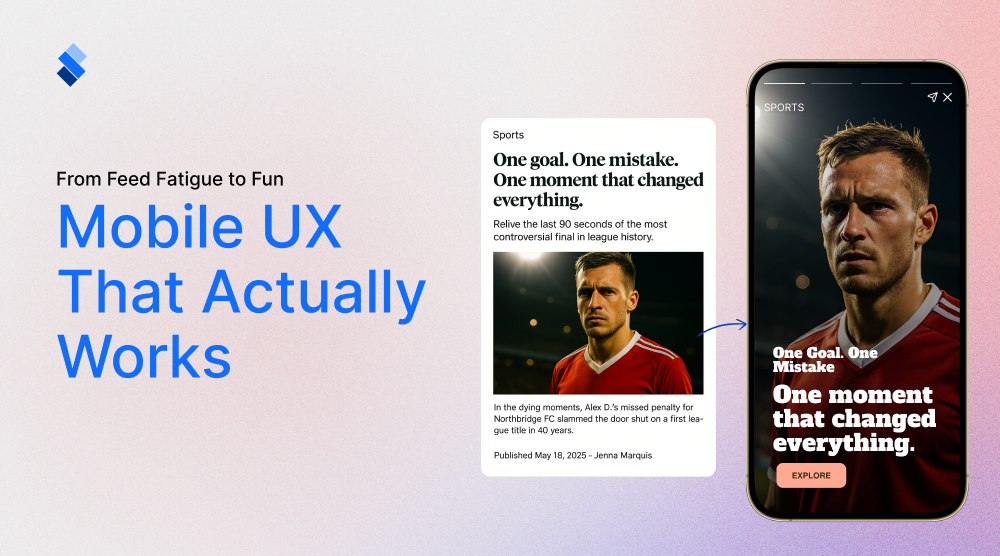Best Analytic Tools For Mobile Apps Marketing Managers
In this article, we will explore different analytics tools for mobile apps, and how they are best used for commercial purposes.

If you've done any research about mobile marketing you already know how important apps are. Through apps, companies are able to provide interactivity, engage audiences, maintain relationships, and establish brands. So, if you are considering using mobile platforms for your content (which is practically essential in 2021), designing an app can be a great marketing push. With this in mind, we are going to go over the best analytics tools for mobile apps and how you can use them to your benefit.
Our pick of analytics tools for mobile apps marketing
Some of the analytics tools we will outline are mandatory for performing any type of analytics on a mobile app. Others are more suited for specific types of analytics, like e-commerce and the marketing related to it, customer behaviour or retention rates. Therefore, your job is to familiarize yourself with them and see which ones best suit your mobile marketing needs.

Google Analytics
If you've never dealt with mobile app analytics, we suggest that you start with Google Analytics. This is a free tool that gives you all you need as a beginner. While it is mostly used for standard online marketing, it does have tools more suited for mobile apps. So, you shouldn't shy away from giving it a try, especially considering that it is completely free.
Apple Analytics
If you are more focused on iOS, we suggest that you try Apple Analytics. While it is similar to Google Analytics, it is more optimized for iPhone apps and gives you much more precise info. With it you can:
- Track user engagement.
- Track app store impressions.
- Utilize user segmentation tools.
- Get popularity rates for apps and in-app subscriptions.
With these functionalities, you can make the necessary adjustments and figure out ways to both get and retain customers.
Leanplum
When it comes to analytic tools for mobile apps, Leanplum can be considered as an all-in-one. Its primary use is for content and mobile management. But, it does have a set of tools that you can use for analytics and A/B testing. Through it you can keep track of:
- Funnel metrics.
- User churn and drop-offs.
- Automated insight data.
- Real-time analytic data.
So, if you are looking for an all-in-one app management tool, we suggest that you check out Leanplum.
Firebase
If you haven't yet developed the app you wish to monitor, we suggest that you try Firebase. You can use this mobile platform, not only for analytics but also for app development. Its tools allow you to tackle development and marketing at the same time, which can be quite useful for alterations and modifications.
UXCam
Whether you are using an app or a website, it is always useful to monitor customer behaviour. By doing so, you can see how their attention flows and ensure that they are naturally guided towards conversion. Luckily, there are app management tools that can provide tremendous help with customer behaviour monitoring.
UXCam allows you to view the recording of users sessions. This not only helps with monitoring customer behaviour but also gives you a clear way to see how your app functions. Developers especially make great use of this tool, as it clearly shows bugs and crashes that would otherwise be hard to identify.
Flurry
If all that we've mentioned so far sounds a bit complicated, you might want to resort to using Flurry. This is an intuitive, user-friendly platform that gives you valuable tools for straightforward analytics. With it you can:
- Track new and active users.
- Track their sessions and set your behaviour parameters.
- Analyse activity across the whole app portfolio.
If used properly, Flurry can be more than enough for a decent understanding of both app performance and user behaviour. And the great thing about it is that there is no large information wall to overcome.

Mixpanel
Another great analytics tool to start with is the Mixpanel. By using it you will get a better understanding of the user's journey through your app, as well as different paraments that can help improve it. What makes Mixpanel so great for novice use is not only its easy-to-use design and overall intuitiveness. It is also the fact that it requires no code in order to set up analytics tracking. So, even if you have no prior experience with analytics, you can easily set up the parameters you wish to track.
Facebook Analytics
If your app is closely related to Facebook, you might consider incorporating Facebook Analytics as your analytics tool. While it is not as robust as the others we've mentioned, it does give you an easy way to connect your app to your Facebook page. If a company is trying to market itself on a budget, this is more than enough as running a Facebook page along with a simple app can be all you need in regards to online presence.

Localytics
Localytis is a great tool for combining app analytics and marketing. Besides standard features used for analytics, we would like to mention the retention feature, which can be especially useful. If you are struggling with customer retention, this feature will effectively show you where your app fails. Once you administer changes, you can set up Localytics to notify you about any updates. So, if you are worried about customer engagement and conversion rates, Localictys is the tool to use.
How to pick the right analytics tool
The analytics tools for mobile apps we've outlined so far are those we feel give you the biggest bang for your buck. Apart from them, you have a ton of different options to consider and utilize. So, as we mentioned before, it is in your best interest to carefully figure out what analytics your app needs, and how you are going to use the data you gather.
The smart thing to do is to find apps similar to yours and try to figure out what analytics tool they are using. You can learn a lot from your competition, both from their mistakes and their smart decision. So don't shy away from doing the necessary research. That way you won't waste time by trying out all the tools that seem suitable, but in fact, aren't.







